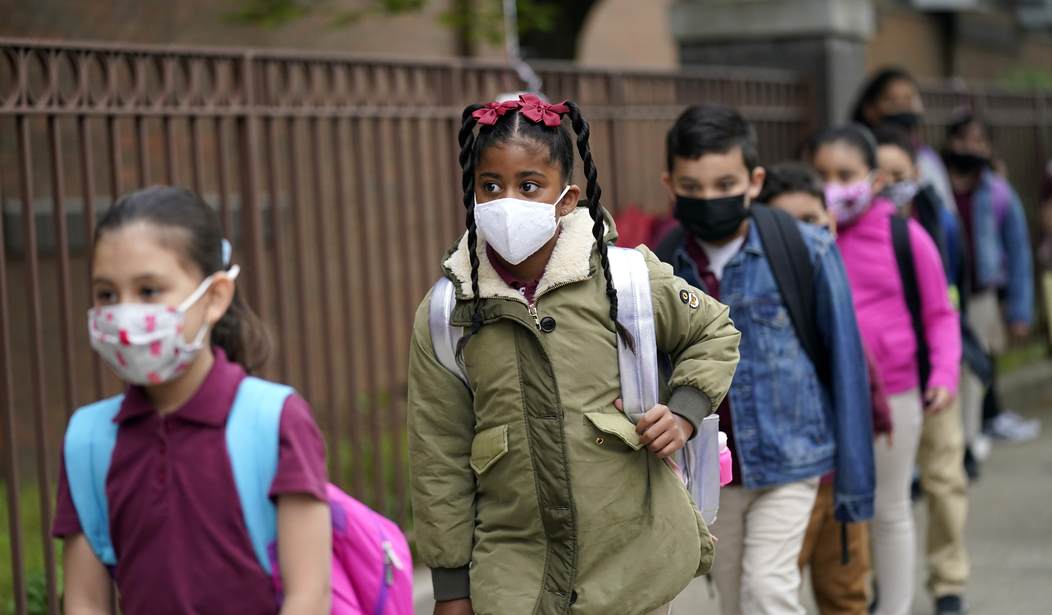We’ve seen a number of studies on this topic already and all of them seem to agree that remote learning was bad for kids. Today the Washington Post reports on several new studies which further clarify which kids lost the most and the likelihood they’ll be able to recover from the loss.
One of the fiercest debates during the pandemic’s first year was how quickly schools should reopen and how significant the ramifications would be of keeping them closed. We now have some answers.
A pile of evidence charts setbacks that were more severe the longer students stayed in virtual school. These studies examined the impact of in-person vs. remote education during the 2020-21 school year, when policies varied widely. In Texas and Florida, Republican governors ordered schools to operate in person starting in fall 2020. Elsewhere, and often in big cities, resistance and fear of the virus among teachers and parents kept schools virtual for a year or longer.
The article points to four separate studies, all of which concluded that students lost less learning under the red state model than they did under the blue state model. For instance:
An Ohio study found that reading achievement in school districts that went fully remote fell, on average, two or three times as much as it did for those studying in person during the 2020-21 school year…
“The more weeks of remote learning, the less students learned during that time-period,” said Vladimir Kogan, a political scientist at Ohio State University, who produced these reports.
The studies also agree that students in districts with high poverty rates suffered more than those in districts with low poverty rates. A report based on data from NWEA, an education non-profit, found “Remote instruction was a primary driver of widening achievement gaps.”
Will kids be able to bounce back? Some might but the evidence so far suggests students are returning to pre-pandemic performance but that’s not enough to make up for a year or two of losses.
A national study using 2022 NWEA data found in the case of younger students, the learning last year was close to pre-pandemic levels, helping students begin to catch up. But given the steep declines of the previous year, students were still far behind, particularly in high-poverty schools…
But again, some subgroups of students grew at faster rates than would be expected, including Asian American, Pacific Islander and White students. Hispanic and particularly Black students grew more slowly than expected, as did students with disabilities.
One finding of some of the studies is that older students are recovering more slowly than younger ones. That’s a problem because it means the students who were closest to graduation are regaining ground at the slowest pace.
The Ohio data, for instance, showed that students in grades three, four and six made up at least half of the lost ground in reading. Seventh-graders made up some ground, though not as much. There was scant improvement in eighth grade, and in grade 10, scores dropped again.
In math, there was modest progress in most grades, but in 10th, there was virtually none.
The point of the article is just to lay out the findings in the research but the findings raise some obvious questions which I haven’t seen explored much.
- Who is to blame for these terrible outcomes?
- Will anyone be held responsible for this?
- Is there anyway to fix the problem or are we just going to move along?
- How can we keep it from happening again?
My own view is that the answer to the first question points in a direction (teacher’s unions, Democratic politicians) that makes it unlikely there will every be any real attention paid to the other questions. That’s a shame because if any other group had done this much damage to this many students they would be afraid to show their faces in public.
Finally, I’ve said this before but if you want to know why parental control of education has become such a hot topic lately, this is why. Parents saw up close what the experts did to their kids so now they’re no longer content to sit back and let the experts manage things. Massive failure has a way of undermining credibility.









Join the conversation as a VIP Member